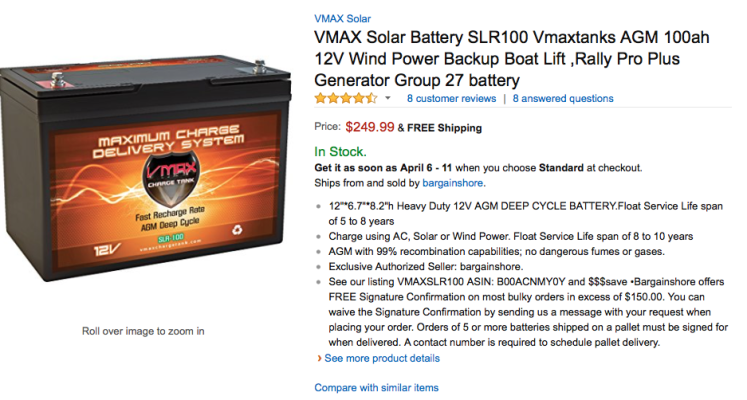john cotterman
Member

I just got back from the long drive from NC to NH to pick up my new Fleet. While I anticipate having a few other questions to throw out, my first one relates to the battery that was installed.
The Fleet came with a Deka 8A24 AGM Battery. The 20 hr capacity rating is 79 a/h. When I looked up further details on this battery I see that is a dual purpose battery, meaning it can be used deep cycle as well as starting. This is a compromise and I'm assuming not as appropriate for boon docking (I have a 100 watt solar panel) as a dedicated deep cycle. Why are these batteries put in the FWC? I'm not going to start anything with it.
I have a 2-year old VMax 85 a/h true Full Cycle AGM battery that I have been using in my about-to-be-sold Aliner camper trailer. I am needing to decide whether to swap out my new Deka and put the VMax in the 4WC. It makes sense with the possible reservation. The Deka is new, the VMax is a couple of years old. Do you think the age of the VMax eliminates any advantage it otherwise has in this comparison?
Another question. I was told that when my truck is connected to the FWC, my truck battery will be drawn upon even when the truck is fully turned off. There is a monitor/control that will switch off this connection when the truck battery reached a certain level (a level below which starting the truck would be a problem). I'm wondering again, why is it a good idea to have the FWC electrical system continue to get voltage from my truck battery when it is turned off and not being recharged? On my previous truck camper combo I installed a solenoid on the truck to prevent just this situation. When the truck ignition was off, the voltage to the camper was stopped. Why is this not the better solution?


